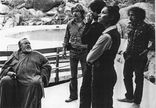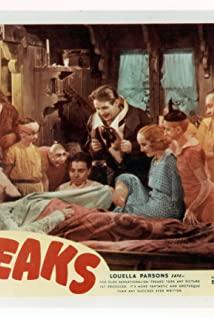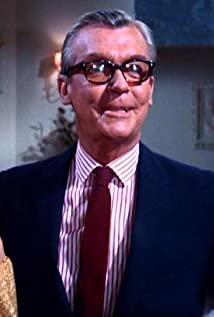"The Other Side of the Wind", as Welles' last film before his death, is an important part of film archaeology. If it can't be brought back to light, Welles' film career and artistic heritage will never be fully understood. A legendary master wrote a complete full stop. In the last 15 years of Wells's life, his heart and soul were on the film, but due to funding problems, coupled with Wells' desire to be in full control of the entire process, but it was never able to do so, and he ultimately failed to complete the film. For the production, only a 42-minute short film and some materials are left.
Perhaps genius is destined to be incomprehensible, Wells has been unable to escape the interference of other people's will in his life, and he is unwilling to assume a posture of compromise. Concession in strength; retreat in perseverance, and finally left with the regret that we have seen. In any case, even if it is repeatedly denied and suppressed by capital, it still cannot annihilate the fiery soul born for creation. The greatness of genius can even be separated from the grasp of the whole, exuding a flash of inspiration in the fragmented fragments. "The Ambersons" is like this. The tragic ending is completely contrary to Hollywood, the dream-making capital. Wells's sharp capture of the family lifeline gently and accurately announces to the world that a period of time has passed, followed by all the A fade away that carries family memories. This is even more true in "Beautiful Woman". The capitalists even need to resort to deception to suppress Wells' strength. Fortunately, the tortuous road often leads to similar results. A temporary loss will not affect the recognition of later generations. It is a pity that the genius at the root of all things cannot witness for himself the honor he deserves. "The Other Side of the Wind" can be said to be the most confident work for Welles, so confident that he dares to claim that it is a great work that surpasses "Citizen Kane". However, what greeted him with enthusiasm was still the cold eyes of reality, so much so that he never saw the film come out until he died.
The reason Wells's repeated setbacks on box office values (which, of course, dampened his creative enthusiasm) boil down to his being a film poet. Hollywood's financial experts (and moviegoers around the world, too) are receptive to beautiful prose (such as those of John Ford and Howard Hawks) and even poetic prose (such as Hitchcock and Polanski), but has difficulty accepting pure poetry, legend, allegory and myth (eg Kubrick, David Lean). There's no need to compliment Wells for being faithful and uncompromising to himself, because he couldn't change it if he wanted to: every time he said "begin," he changed the unsatisfactory reality into a literary one. 's poems.
"The Other Side of the Wind" is about an old Hollywood director who is filming or has just finished filming his last film. The film started in 1970, and then stopped and stopped, just like Welles did when he made "Othello." Orson Welles was reluctant to let people recognize his features in the protagonist, so he hesitated for a long time to choose the actor who played the director Hanafort; Thinly "divided" in order to delay the Hanafort shot. It wasn't until 1974 that he decided to hand the role of Hanafort to like-minded John Huston. Nor should we see this film as Wells' farewell to filmmaking -- the equivalent of Jean Cocteau's "The Will of Orpheus" -- only Wells' work A quarter of them had a will. From Citizen Kane, to Mr. Arcadine and Don Quixote; Wells's preference for biography is noted—a balance sheet of existence, an in-depth exploration of past times. So it's entirely predictable that he must have a lot to say about Hollywood, fans, biographers, journalists... In this film, Hanafort even mockingly counts how many books are dedicated to him. There's also a great line for a character in the film, "Did you know they use it in Shakespeare?"
We tried to piece together the remaining dozens of minutes, and edited them together as closely as possible to Wells' original intention, and what we got was the other side of Wells, the other side of the world that didn't belong to us. It's like discovering the wonderland of Oz or a long-lost tomb. This film shows that art comes from life, and life reflects art. The reason it's become so legendary now is because so many people are involved, hoping to finish the film, only to fail again and again. The important thing is not the film itself, but the process of reshaping memory and reconstructing history that follows.
View more about The Other Side of the Wind reviews











